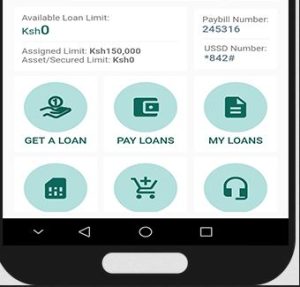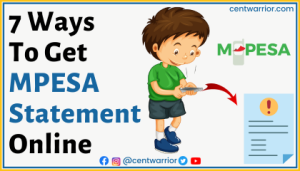From dishwashing and laundry cleaning to bathing, soap is a daily need in every home. However, the increased prices of renowned brands are pushing Kenyans towards more affordable and customized options. As a result, starting a soap-making business in Kenya can generate massive profits for you.
To start a soap-making business, you’ll need an initial capital of between Kshs 5,000 and Kshs 200,000. This venture can earn you a profit margin of 30% to 100%.
Soap is no longer limited to cleaning chores; it has become a favorite for individuals looking for skin solutions. A good example is Cleo, which makes goat milk soap to improve skin health. You can find a niche, too, that meets your target market’s needs and rakes in huge profits.
In this blog post, I will cover the following:
- What you need to start a soap-making business
- Two soap-making methods
- The cost of a soap-making business
- How to open a soap-making business in Kenya step-by-step
- Commonly asked questions
Let’s dive in!
The ABCs of Soap-Making Business
Before you open a soap-making business, you need to understand the primary elements that affect it. Some of the critical things you should learn include
Why Start a Soap-Making Business?
Why invest your hard-earned money into the soap-making industry?
- High Demand: Like other daily ingredients, soap is highly demanded regardless of the season. Hence, you’ll have a ready market to supply throughout the year.
- It’s Not Capital-Intensive: Soap-making is among the most affordable businesses you can start in Kenya. Reason? You only need the soap-making chemicals, and you can make your first stock from home.
- It’s a Growing Industry: Bar soap and detergents were the most commonly used products in the old times. However, this era has introduced more soap products such as fabric softeners, dishwashing, and toilet cleaners. You can earn big bucks, too, by investing in this business!
- No Entry Barriers: Once you have all the legal documents, you can make soap and sell without disruptions. This is favorable compared to medical industries, which have numerous demands.
What Do You Need To Make Soap?
To start a soap-making business at home, you will need the following materials. Note that the ingredients used vary depending on the type of soap you’re making.
- Sodium hydroxide
- Coconut oil
- Olive oil
- Palm oil
- Fragrance or essential oils
- Water
- Shea butter
- Activated charcoal
- Lye solution
- Moulds
- Caustic
The Soap-Making Process
There are three methods of making soap
Method 1. The Melt and Pour Process
This is a simple soap-making method that uses pre-made soapbases. Typically, you will cut the soap bases, heat them to melt entirely, and then add essential oils, fragrances, and colorants to the desired outcome.
Once you accomplish the desired mixture, pour it into moulds and leave it to cool for a few hours. Remove the moulds to get your bar soap.
Method 2. The Hot Process
This soap-making method requires essential oils, shea butter, and sodium hydroxide. Measure according to your supplier’s recommendation, and follow the instructions carefully.
Some steps can be dangerous, like mixing water with lye. Here, you should add lye to water; never pour water into lye. Once the mixture is ready, leave it to cool and add it to moulds to form your preferred shape before packing it or cutting it into smaller pieces.
Method 3. The Cold Process
This process requires sodium hydroxide, essential oils, water, and fragrance. Measure all the ingredients accordingly, then mix the lye with oil to get soap batter. Stire the mixture while adding fragrances and colorants.
Take the last mixture and pour it into moulds, leaving it for two days. Cut the final soap into small pieces and cure it for several weeks for the best results.
The Cost of a Soap-Making Business
The cost of starting a soap-making business varies, depending on the size and niche of your venture. If you start making soap from home, you need an initial capital of Kshs 5,000 and above. However, if you decide to go on a large scale, you’ll need up to Kshs 200,000.
All you need to do is visit a store dealing in soap-making chemicals and identify the prices of each ingredient to prepare a fitting budget.
Starting a Soap-Making Business (Step-By-Step Process)
Step 1. Acquire Soap-Making Skills
Soap-making courses are readily available across the country. You can learn how to make different soap products from an individual or an organization. Then, practice your skills to produce liquid soap, bar soap, beauty soap, fabric soap, bleach, or toilet cleaners.
Once you sharpen your skills, you can start planning to open your soap-making business.
Step 2. Choose a Niche
Identifying your target market is the first step toward finding the right niche. Here are some questions that will help you identify your target market
- Which type of soap has the highest demand?
- What is the market gap in the soap industry?
- Are the current suppliers able to match the market demand?
- Which is the most profitable soap?
Depending on your target market’s needs, choose a niche that will provide an unrivalled solution. If you’re focusing on women with skin issues, create a soap product that will leave them with flawless skin.
You can accomplish this through the use of natural ingredients and animal products. This will position you as a reliable soap company.
Step 3. Prepare a Soap-Making Business Plan
A business plan defines your short and long-term business goals. It provides a clear map to follow when setting up and operating your soap-making business. Some of the key things it covers include:
- The initial capital
- Strategies to raise the startup capital
- Your target market
- The range of products in your business
- The required equipment and raw materials
- Your business location
- Marketing strategy
Step 4. Acquire Legal Documents
To run a soap-making business, you must complete specific legal processes and acquire the necessary documents. The most basic is business registration, which is available online on eCitizen. If you run as a sole proprietor, you need a national identity card, KRA PIN certificate, and email address.
To operate any business in Kenya, you must have a business permit. To acquire this document, you’ll visit your county council offices and describe the type of business you want to start. Then, they will advise you on which kind of permit to apply for.
The final legal requirement for a soap-making business is a health certificate. To acquire a health certificate, a health officer will visit your premises to inspect whether your business meets the standards necessary. Then they will provide you with a certificate.
Step 5. Connect with Reliable Suppliers
A reliable chemical supplier allows you to enjoy timely delivery and affordable prices. Moreover, they’ll keep you updated on the new products and technologies emerging in the soap-making industry. Hence, you can offer your soap products at friendly prices compared to your competitors.
Step 6. Purchase Equipment and Supplies
It’s time to purchase soap-making equipment and supplies to kickstart your business. Some of the basic things you should buy include:
- Weighing Scale: You will need to put specific measurements of every ingredient.
- A Thermometer: Soap-making involves preheating and cooking chemicals to different temperatures.
- Blenders: You’ll need to use a blender to crush natural herbs such as turmeric
- Mixing Kettles: Every soap-making stage involves adding more ingredients; mixing kettles is a saver.
- Moulds: You need moulds to shape your soap base into rectangles or circles.
- Labelers: Labelers ease the job of assigning names to each soap after packing them in wrappers.
You can source soap-making chemicals from Chem Care, Light Industries, and Tata Chemicals. To open a large-scale soap company, visit the OLX website or Nyaweco Engineering Works in Nairobi for high-quality machines.
Step 7. Start Soap Production and Launch Your Business
This is the final step when opening a new soap business. You need a unique soap-making process that will help customers identify your brand. You must try out several scents, essential oils, and colors.
Once you identify the unique procedure, start producing soap samples. Then, launch your business with the help of local media companies and posters to spread awareness.
Are you stuck at any of the above steps? Do not hesitate to ask for business consultation services from our business expert.
Tips To Boost Your Soap-Making Business
Businesspeople dream of making massive returns and expanding their ventures in the long run. Unfortunately, this is never a reality for all entrepreneurs. Here are a few pro tips to help you boost your soap business
Tip 1. Identify Your Target Market
Identifying your target market is vital in setting up your soap-making business. Why? Obviously, they have the money, and if your soap product can solve a problem they’ve been struggling with for a prolonged time, they’ll easily buy your soap.
So, ensure you choose a target group looking for a solution you can offer with your soap products. Some of the key target groups making soap industries big bucks are women with acne issues.
Tip 2. Market your Soap Products
What are your soap products?
What problems do they solve for your customers?
Marketing helps you bridge the gap between production and exchanging goods for money. You must have an effective marketing strategy to convince prospective customers to purchase your soap.
If you’re working on a tight budget, you can start small by opening social media accounts for your business and posting about your product on local pages. Alternatively, if you have enough funds, hire reliable marketing professionals to help you market your products.
Tip 3. Leverage Influencer Marketing
A well-known celebrity advertisement attracts followers to follow suit. You can hire TikTok’s top talents to help market your soap as the ace solution they’ve discovered.
Nevertheless, you must be very careful when engaging in this marketing approach. Don’t sell what you don’t have; if you sell a soap that clears acne, ensure it does, or your customers will drop your products as soon as they discover it does not work!
Tip 4. Implement Accurate Bookkeeping
Can you account for the money coming in and going out?
How much are your expenses and returns?
Having a technique to monitor how money flows in your business helps you identify points of improvement. You can minimize your expenses while maximizing the returns to drive the success of your company in the long term.
Tip 5. Develop a Growth Strategy
Where do you see your soap-making business in the next 5 to 10 years?
This is a common question from business coaches; don’t let it be a cliche. Think through the change you want your business to go through and create a strategy to help you accomplish significant growth.
You can develop a growth strategy with the help of a business coach or the executive team if you have one in place.
Frequently Asked Questions
1. Where Can I Get Chemicals for Making Soap In Kenya?
Soap chemicals are readily available across the country. From Nairobi to Kisumu, you only have to click on ‘soap making chemicals + your location’ and choose the map results on Google to get a list of soap shops near you. Here is a list of Kisumu soap ingredient shops you can visit.
2. Is Soap Making a Profitable Business?
Soap-making business is a profitable venture with up to a profit margin of Kshs 50%. Nevertheless, it’s important to note that your returns rely heavily on how much you sell and the quality of your products.
Also Read:
- How To Start a Lucrative Laundry Business in Kenya
- How To Start a Successful Cosmetic Business In Kenya
Let’s Kickstart Your Soap-Making Business Journey!
Soap-making can be a great side hustle, requiring less time and capital. When starting your soap business, you must be strategic to run your venture smoothly. Begin by acquiring the skills, finding reliable ingredients suppliers, and producing quality soap products that match the needs of your target audience.
Do you need help in setting financial goals or clearing debt? Visit the Cent Warrior store for expert guides.







